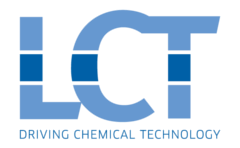Development of methanation catalysts and process integration
Aim
Design, characterize and test novel methanation catalysts and evaluate their potential in power-to-methane energy systems.
Context
The future energy system will rely heavily on green energy molecules (e.g., H2, CH4, CH3OH) for energy transport and seasonal energy storage. These molecules are derived from power-to-X (P2X) schemes connected to wind, solar or other renewable energy sources. Green H2 is one of the possible energy carriers produced from P2X and water electrolysis. The lack of H2 storage, the low volumetric density and low boiling point of H2 are critical downfalls of H2 as a strategic reserve, and the complete roll-out of H2 prompts both technical and economic challenges. Alternatively, this green H2 is converted to synthetic CH4 in power-to-methane (P2M) technologies via the Sabatier reaction. CH4 has a higher energy density and the large natural gas infrastructure (storage and pipelines) is entirely compatible with syn-CH4 as an energy carrier. Recent energy studies indicate that the advantages of converting green H2 to syn-CH4 outweigh the disadvantages within the Belgian energy system. Additionally, methanation is often applied in biogas upgrading to increase the yield of bio-CH4. For these reasons, the development of efficient methanation catalysts and processes are important building blocks within CCU.
Methanation thermodynamics favors low temperatures. Novel transition metal-based methanation catalysts demonstrate high conversion and selectivity for CH4 at atmospheric pressure and below 350 °C. Important requirements for methanation catalysts with P2M schemes are stability and resistance to poisoning (sulfur, carbon, etc.). During the CATCO2RE project, together with VITO, the Saeys group developed 3D-printed NiAlOx methanation catalysts with excellent activity and stability at 350°C, achieving 98% CO2 conversion and 99% CH4 selectivity.
Program
Program
Further experimental exploration of methanation catalysts is needed. The following tasks are envisioned:
• Material Synthesis & Characterization. Design next-generation methanation catalysts and characterize the materials using XRD, TPR/TPD, N2 physisorption, (HR/S)TEM, FTIR, etc.
• Performance Testing. Dedicated lab-scale fixed bed reactor set-up at the LCT allow performance testing of these materials, with a focus on stability and poison-resistance.
• Process Simulations to identify key material and process characteristics for optimal integration of methanation in a P2M system.
• DFT-based micro-kinetic modeling to guide the design of next-generation methanation catalysts.
